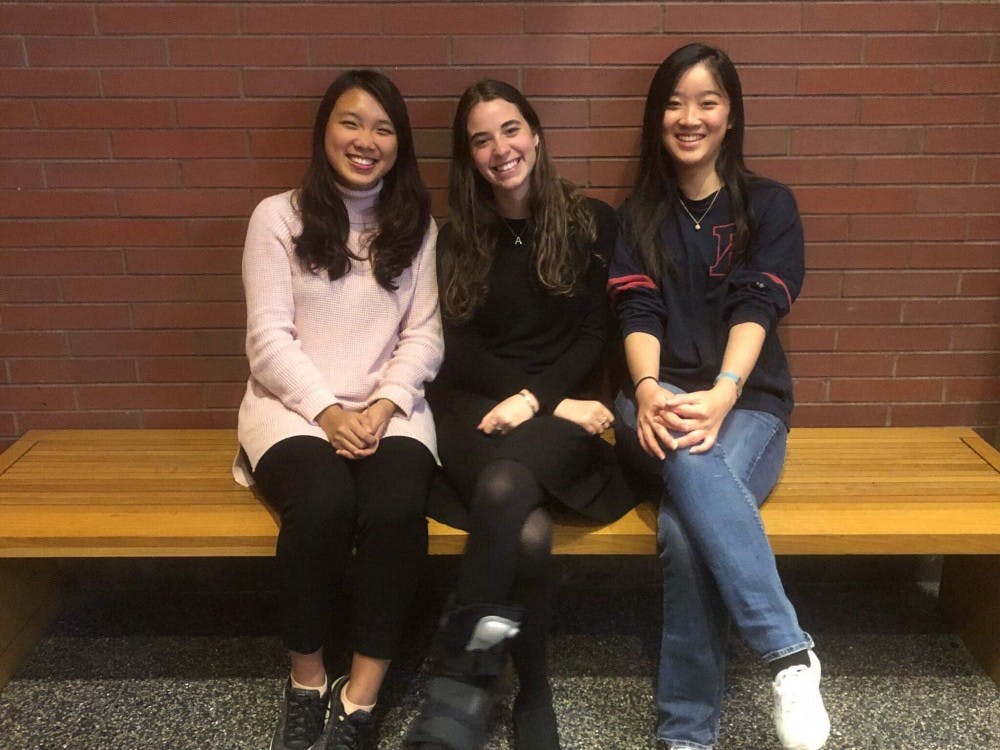For three Penn students, the two nations Israel and China have a natural bond.
College sophomore Isabelle Tao, Wharton sophomore Arianna Samet, and Engineering sophomore Margaret Ji recently co-founded Penn’s chapter of the China Israel Connection club, a student organization that seeks to create a stronger Chinese-Israeli relationship and already has one chapter established at Columbia University.
The three sophomores all said that their previous internship experience in Israel inspired them to start the club. Ji partook in CIC at Columbia’s Summer Fellowship Program, Tao secured an internship through Penn's Israeli consulting club Tamid, and Samet worked at an Israeli biomedical startup.
Ji said while interning in Israel, she saw a beneficial relationship between Israel and China. She pointed out that Israel is looking for investment opportunities in China, while China was looking to learn more about Israel’s “startup culture” and technology sector.
The three pitched their club to several other student organizations including Tamid and Hillel. So far, Hillel responded that they were excited to collaborate with CIC, Tao said. The club hopes to bring in speakers in the future and host social gatherings, such as potlucks and celebrations of mutual events.
Despite its developing relationship, Samet said she acknowledges that the two nations face some political differences. Wharton professor and China expert Marshall Meyer said in a March post from Wharton’s online business journal that “the older generation in Israel is wary of China because the latter votes against it in the United Nations.”
However, Samet added that “just because Chinese politics might not necessarily coincide with Israeli politics,” the Israeli-Palestinian conflict should not dissuade closer economic and cultural ties.
“I think that the larger Chinese communities and the larger Israeli communities definitely have a lot to agree over,” she opinionated.
The co-founders are also encouraging Penn students to apply to the Summer Fellowship Program. They expressed hope that the program will expand and collaborate with more companies across both countries.
Under CIC at Columbia’s Summer Fellowship Program, established in 2015 with the goal of strengthening economic ties, students who identify as “China-affiliated” intern in Israel while “Israel-affiliated” students intern in China.
Students do not have to be Chinese or Israeli to participate in the program, but they must “have a demonstrated interest in the Sino-Israeli connection,” the Columbia chapter's website states. As of this year, the fellowship has partnered with over 50 different companies.









